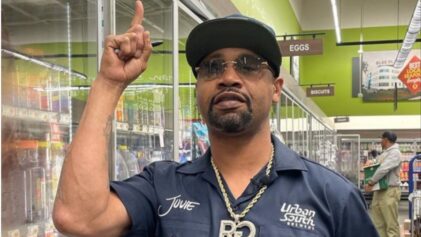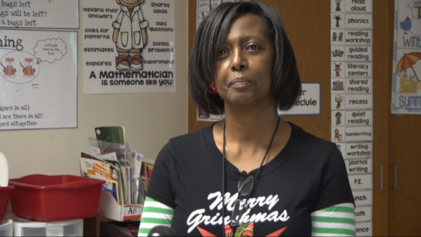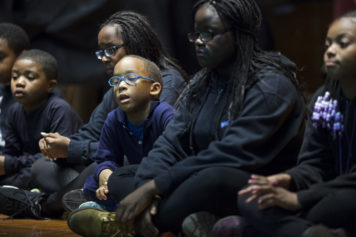
In the United States, public education reform is a popular topic, and right now there is no city more in the center of that discourse than New Orleans. Contrary to mainstream reports of charters as “redefining” education, during research for this article, one Louisiana educator posited that the charter school system is “not as innovative as it seems.” Citing yearly changes in accountability measures for teachers and revealing that many schools once becoming a charter have a vastly different student body than pre-charter, this educator problematizes the dominant discourse around “successful” charter schools. The changing student body is a key point because much of the advocacy for the charter school movement is that it improves educational outcomes for students who were previously failing. However, this educator’s revelation shows that the pre- and post-charter comparisons in many cases are nothing more than juxtapositions of apples and oranges. This educator is not anti-charter, but is anti much of the “excellence” and “benefit” story that has accompanied the charter school movement in New Orleans. Furthermore, this educator is dedicated to improving education for the youth of Louisiana, an example of the community commitment so intrinsic to Black educators of Black youth.
When asked about the move from veteran teachers, many African-American, the aforementioned Louisiana educator stated, “The big push is for cheaper labor across the board … [They] say effective business model but practices are to the contrary.” If intent to work and best practices were the goal, this educator said, “Most experienced people would be placed where your highest need is … your most experienced teachers would be more compensated.” This sense of devaluing Black teaching experience is nothing new in the U.S. education historical context. In the foreword to Black Teachers on Teaching, Dr. Lisa Delpit writes “racist paternalism was responsible for the mass closures of Black schools and mass layoffs of Black teachers during the integration process.” But even during segregation, according to Dr. Michele Foster, author of Black Teachers on Teaching, “In 26 all-Black schools in Chicago in 1930, only 34 percent of the faculty was Black.”
The exodus of Black teachers in New Orleans is not something germane to this particular moment, but rather it is one of the trademarks of the neoliberal reform that has become indicative of educational “progress” in the region. In 2011, education scholar Dr. Kristen L. Buras in her article Race, Charter Schools, and Conscious Capitalism: On the Spatial Politics of Whiteness as Property (and the Unconscionable Assault on Black New Orleans) wrote: “Veteran teachers were fired en masse in 2006 … the city’s schools are headed toward complete charterization.” Many of those veteran teachers were Black people from the New Orleans community; teachers who invested decades into students with whom they had what Sullivan called a “shared background.” The dominant narrative has been that the teachers and administrators in the pre-existing system failed students and the new wave of white instructors and administrators are a welcome improvement to what was a decaying system.
While it is true that the New Orleans Public School System was severely flawed, it is also true that Black teachers and Black community members were overwhelmingly absent from the decision-making table in 2005-06 when the Louisiana Department of Education (LDE) and Recovery School District (RSD) moved forward with their “improvements.” As a veteran public school teacher told Buras in her research: “This is the kind of underhanded tactics that was going on while our family members were still floating in the waters of Katrina, while our schoolchildren were still floating in that water.” Nine years ago, Black bodies drifted throughout the roads of New Orleans. Nine years ago, the U.S. government treated Black people in New Orleans as little more than collateral damage. Human speed bumps along the road to progress. And now nine years later, here we are again, the discarding of Black people is positioned as a necessary speed bump along the road to progress. Only this time the Black people being discarded are Black educators, and the progress is the “benefit” and “excellence” of the charter school movement. When asked what she felt was the most salient point for observers of this charter school movement in New Orleans to know, the previously mentioned Louisiana educator stated, “The perceived benefits, and I would like to emphasize perceived, have not outweighed the costs … the major people benefiting are the corporations.”
Ironically, many of the charter school movement’s fiercest defenders see their model as conscious capitalism, which leading conservative education theorist Dr. Paul Hill and others define as “establish[ing] organizations to address specific problems … all businesses should have a purpose beyond profits.” It is this very type of “conscious capitalism” that has spearheaded the assault on Black teachers and the development of a cultural consciousness via education among Black youth in New Orleans. I see much of the charter school movement as an example of what Africana Studies scholar Dr. Michael Tillotson in his groundbreaking text Invisible Jim Crow: Contemporary Ideological Threats to the Internal Security of African-Americans calls “The Post-Racial Project.” Tillotson describes these Post-Racial Projects as having reduced “The spirit of resistance in African-Americans … in many cases to mere compliance and acceptance … Questions of collective agency and self-determination for African-Americans has taken a backseat to notions of individualized success and materialistic advancement.”
It is my assertion that the influx of white teachers and the culturally indifferent pedagogy abundant in the charter school movement elevate the value of individual success and materialistic advancement in Black youth. By centering test score increases and college acceptance in their definition of excellence, the organizational imperative of many in the charter school movement is to create excellent individuals, not to cultivate excellent communities. Educator, psychologist and historian Dr. Asa G. Hilliard reminds us in his book The Maroon Within Us: “Previous reports about ‘excellence’ with rare exception, were reports about efficiency in meeting certain ‘standards’… the standards …do not begin to address the needs of African-Americans.” Hilliard goes on to state that in his assessment, the “excellent African-American child is one who … has the ability to identify independent African-American leadership … has a sense of identity as African-American, has a sense of obligation to one’s people … has done his or her academic and cultural homework.” Hilliard’s characteristics of excellence speak to Tillotson’s ideas of collective agency and self-determination, which I contend is best communicated to and received by Black youth via Black instructors. We must instill in our children not only a confidence in who they are, but we must affirm those whose they are.
By Christopher Roberts: PhD Student in African American Studies: Temple University


